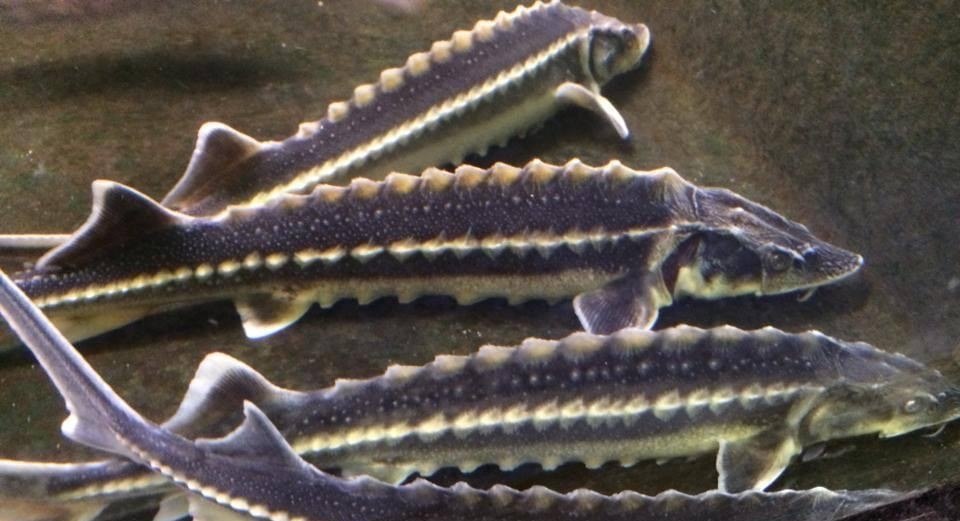Caring for your Pond Fish
Moving to new surroundings can be daunting for fish and it’s perfectly normal for even the tamest specimens to take a little time to settle in, so don’t worry if your new pets are shy at first. Adding a small quantity of food helps the fish to associate your arrival with good things and tame more quickly.
Garden ponds vary in design and while some naturally balanced pools can offer a suitable home for a few species, we’d recommend adequately filtering your pond to avoid issues caused by excessive submerged planting. Low overnight oxygen levels can be a problem in static ponds and often go undetected after a couple of hours of sunshine following early summer dawn. Small water features can also be unsuitable for pond fish due to extremes of temperature and may be best used as seasonal housing for fancy goldfish that spend their winters in large aquaria indoors or left as a resource for wildlife.
With few exceptions, pond fish tend to be members of the carp family. These hardy types have a very seasonal lifestyle and need different care to prepare them for lower winter temperatures. Make sure you’re using a seasonally appropriate food and remember that summer foods can cause digestive problems like bloating and buoyancy issues if fed to fish when temperatures are too low to allow proper digestion.
Pond fish will become friendly and tame in spring and summer if fed little and often as a training aid. As mentioned, this helps them to see you as a provider of treats rather than a threat. For large carp especially, make sure that your filter’s capacity matches your fish’s food input so as to avoid water quality problems. Most species will thrive on pellet or stick foods as adults but may require flakes as youngsters.
The following species are all suitable for adding to garden ponds:
Goldfish (Carassius auratus) are perennially popular because they’re hardy, breed readily and can become very tame. Varieties such as Shubunkins, Sarasas, Canaries and double-tailed Wakin are all popular pond fish and can all be mixed. Goldfish are social and thrive as groups in ponds with both plants for shelter and open areas for swimming.
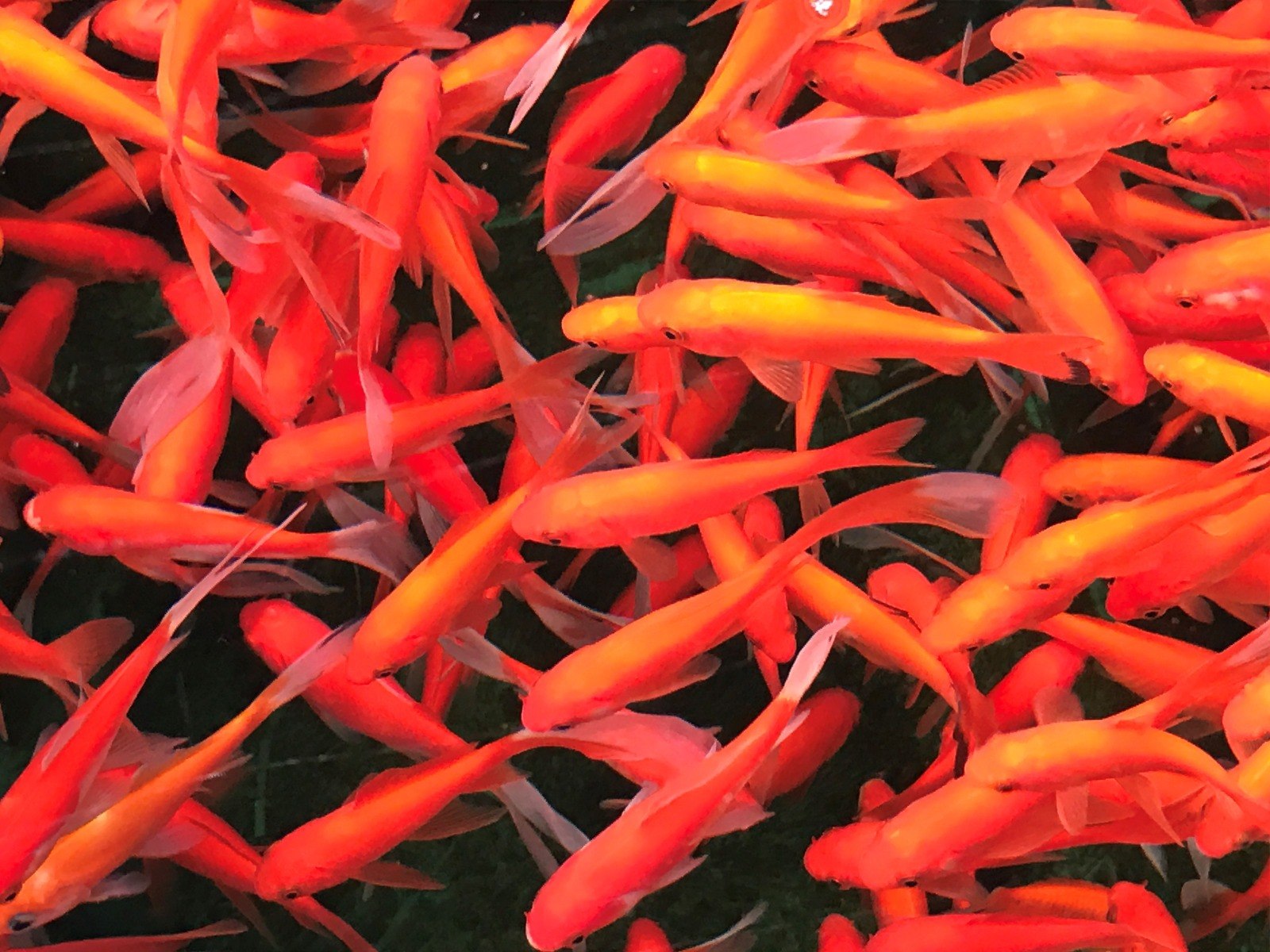
Spawning is lively, with male fish chasing the females into suitable areas to lay their eggs. In ponds with skewed ratios of males to females, this may leave the females damaged and in need of treatment to avoid fungal infections. Most goldfish fry are dark brown until they develop into adults, as this helps them avoid predators.
Although goldfish can be stocked in smaller ponds, bear in mind that they’re not small fish and can be expected to grow to 30cm or more. In good conditions, they can easily achieve a lifespan of twenty years.
Koi (Cyprinus carpio) are large fish that can make excellent pets. To achieve their full potential, koi need lots of water so having a deep pond (of 90cm or more) helps maximise volume. Despite appearances when young and tiny, carp will actually destroy most aquatic vegetation that isn’t properly protected and successful koi ponds need careful planning if plants and fish are to be combined.
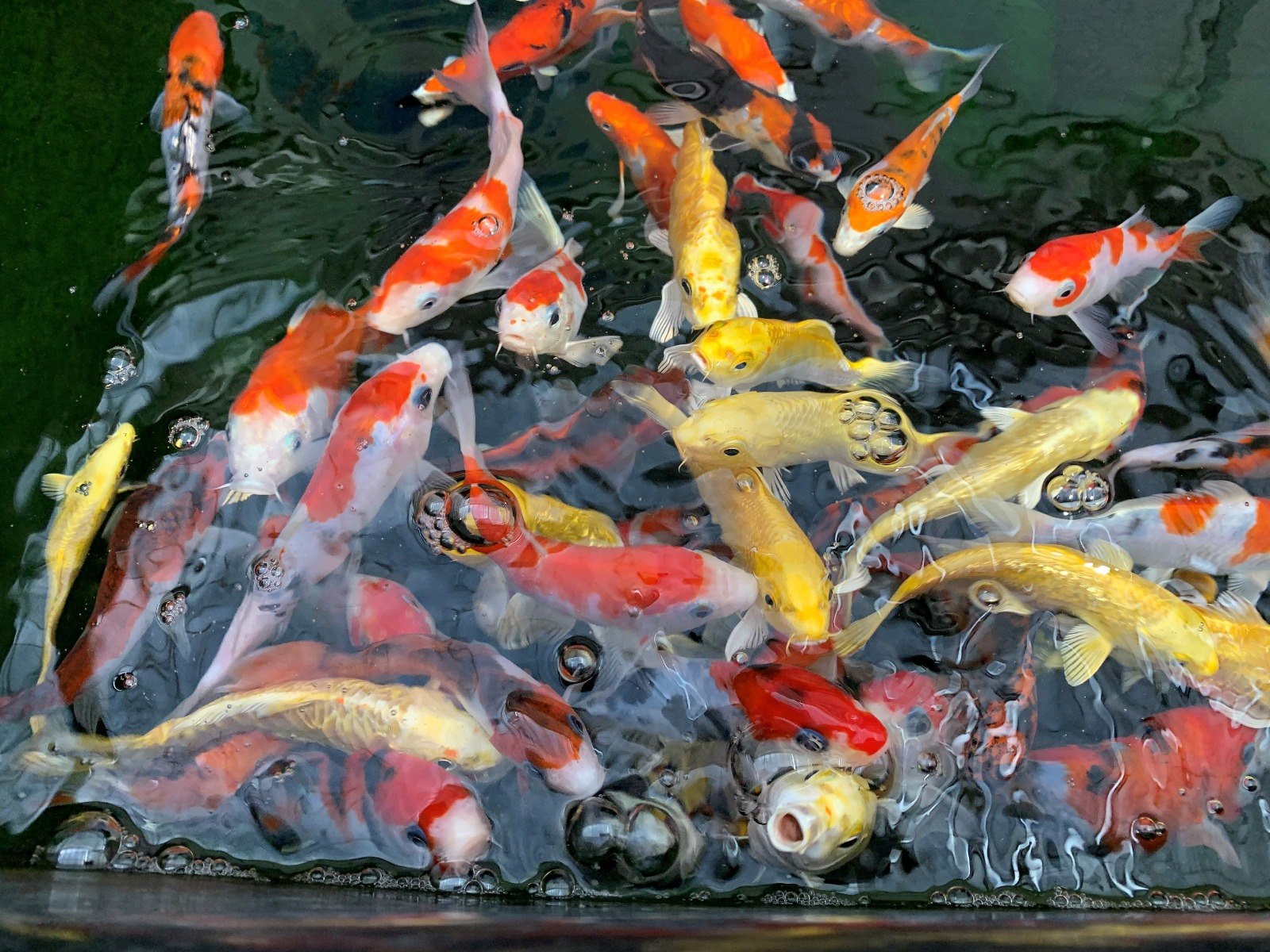
As adult carp are magnificent creatures capable of growing to well over 60cm, it pays to plan ahead and make your pond as large as you can with filtration to match, so that their decades-long lifespans will be happy ones.
Ghost koi are the result of crossing koi and common carp, and have metallic highlights and hardy constitutions. They have all the character of their purebred cousins and also respond to frequent feedings by becoming very tame. More suited to average garden pond conditions, ‘ghosties’ are often kept alongside other pond fish but still tend to uproot aquatic plants and grub around in the mud.
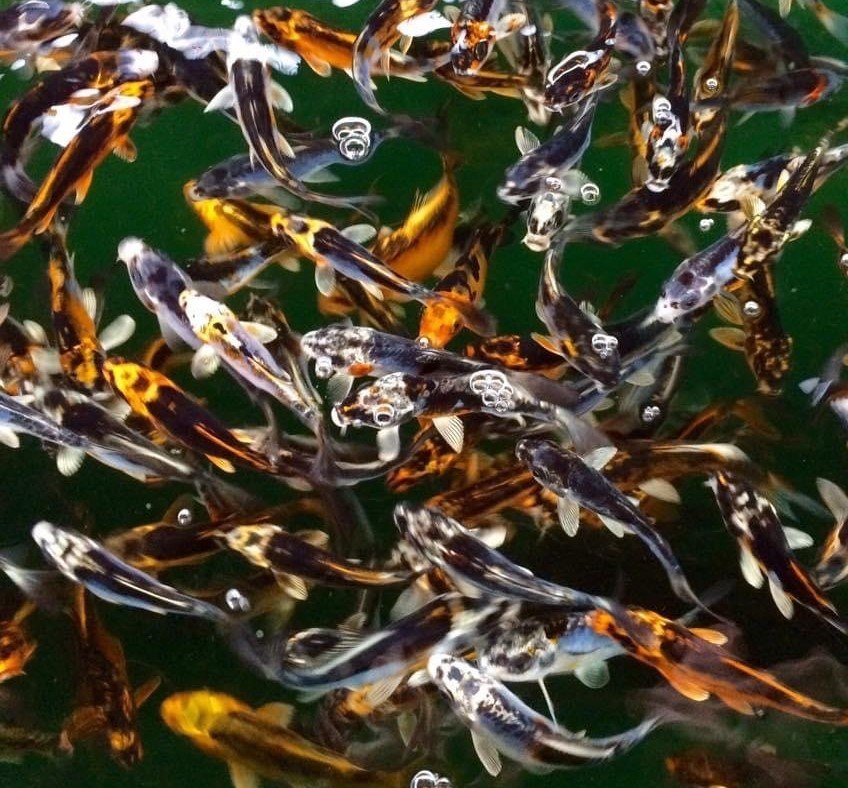
Golden orfe (Leuciscus idus) are an old favourite that still makes a great choice for larger ponds. Fast-growing and active, orfe don’t damage plants but need high oxygen levels and thrive in pools with fountains or waterfalls. Although sensitive to some medications, this is rarely a problem unless they’re mixed with other species, as orfe are very hardy creatures. With a potential adult size of around 60cm, orfe can tend to jump from small ponds, particularly if oxygen levels dip.
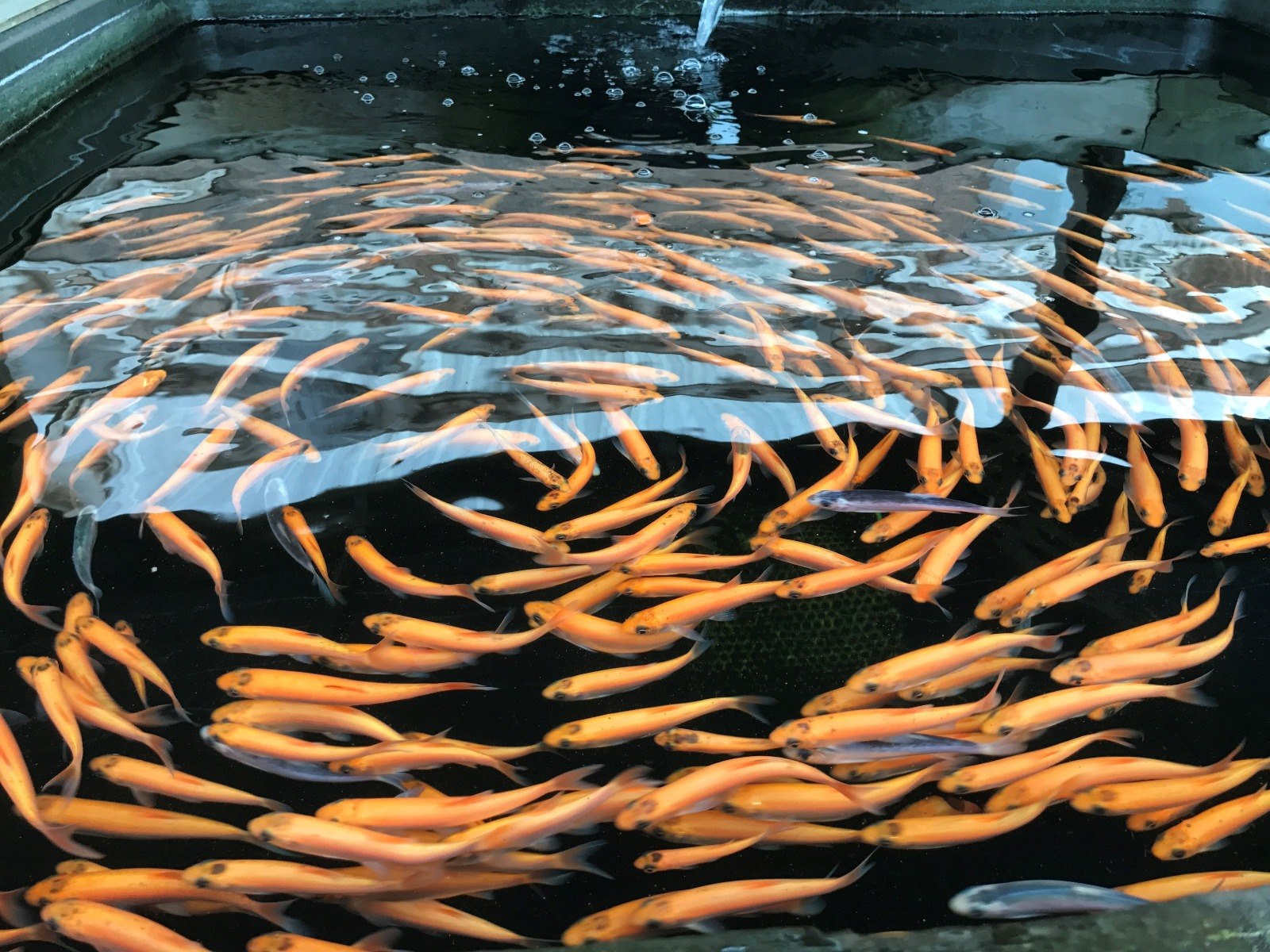
Tench (Tinca tinca) are a native species that do well in planted ponds where they’ll happily grub around the bottom, so sinking foods suit them well. As well as green tench, a gold variety is available and can be easier to see. Although capable of growing up to 60cm, most remain considerably smaller, particularly the gold form. Tench can be sexed by comparing the size of their pelvic fins which are considerably larger in males.
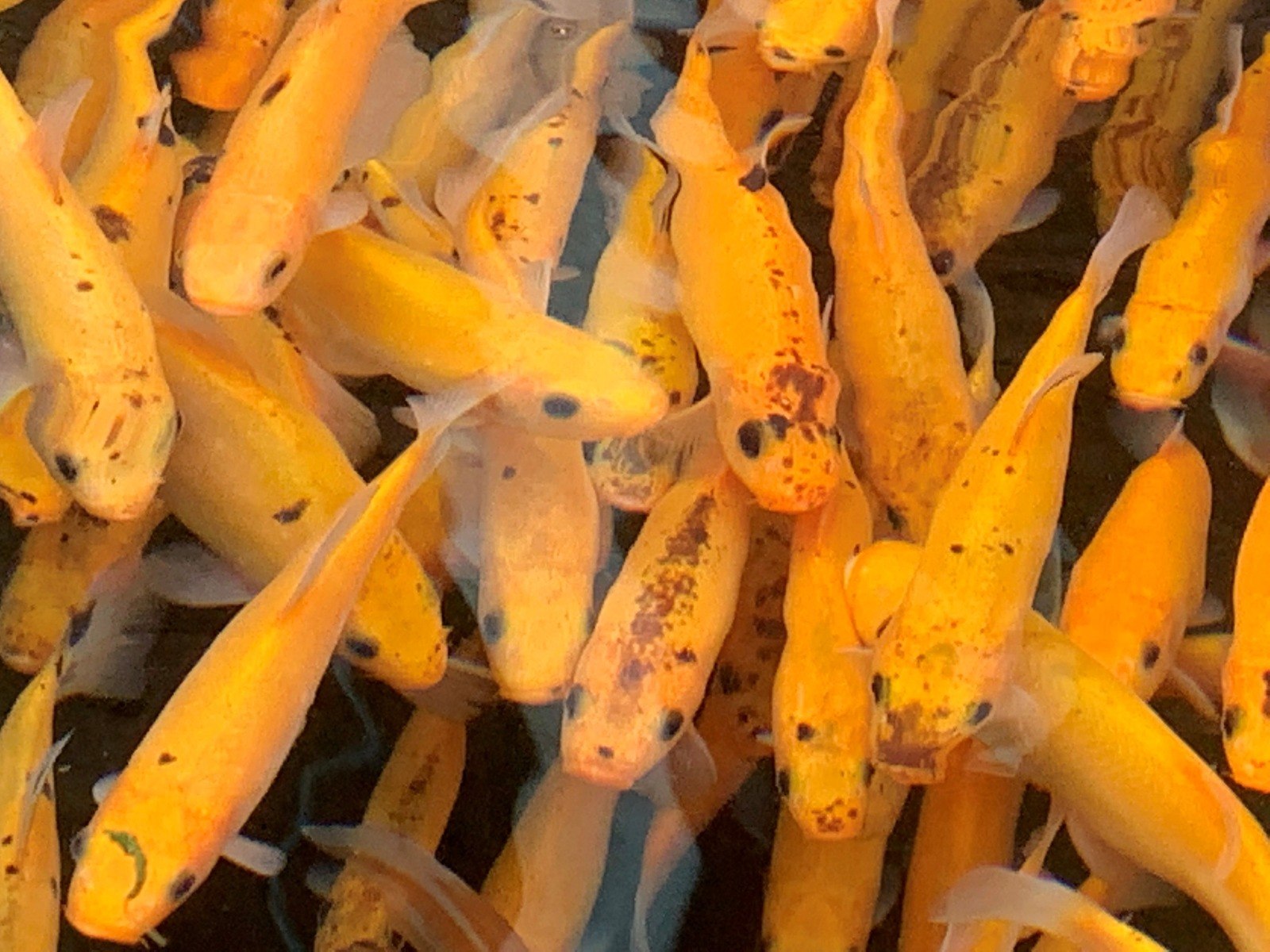
Rudd (Scardinus erythropthalmus) are another native pond fish that are normally seen in their golden form. Well-suited to planted ponds, rudd will eat duckweed and breed readily, making them a good choice where herons are a problem as their prolific nature and subtle colours make them less likely to be eaten. In most ponds, these fish seldom reach their maximum length of over 20cm unless fish stocking remains low. Like orfe, rudd can be sensitive to some medications.
Grass carp (Ctenopharyngodon idella) can be seen in both wild and albino forms, both of which are best suited to the same conditions as carp thanks to an adult size of over 60cm and a fondness for eating aquatic plants. These fish will eat blanketweed and duckweed as well as oxygenating plants. Like carp, adults will enjoy lettuce and other greens as a supplement to a diet of pellets or food sticks.
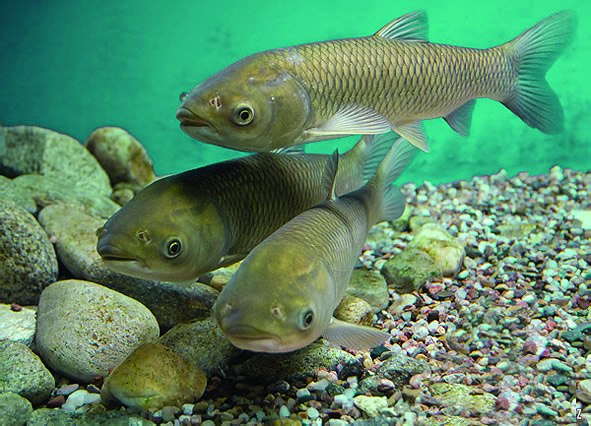
Sturgeons are popular due to their shark-like appearance and constant swimming but can be hard to cater for in small garden ponds. As the smallest member of the family, Sterlet (Acipenser ruthensis) will generally stay under 1m long but need large, spacious ponds and can become entangled in blanketweed due to their lack of manoeuvrability. Unlike the fish listed above, sturgeons need high-protein foods all year round to remain healthy and this can be problematic in a pond full of hungry carp. During hot summer weather, additional aeration may be needed.
